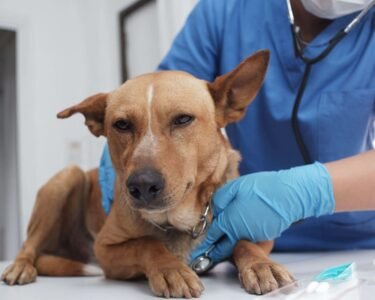The Cookham-based founder of a group that supports victims of stolen pets has said new national legislation is not enough to protect them.
Muddy Paws Crime, set up in 2022, finds stolen pets and liaises with police in their owners’ stead, as they are often in emotional turmoil and find the process challenging.
Its director, Lisa Loops, began with a small group of volunteers, highlighting the stories of heart-broken dog owners and addressing illegal breeding and animal welfare issues across the UK.
She has now cast her lens on the new Pet Abduction Act 2024, which introduces legal changes regarding the theft of pets, specifically cats and dogs.
The act creates a new specific criminal offence for the abduction of pets, intended to reflect the emotional trauma caused to both the animals and their owners.
Individuals found guilty of pet abduction could face up to five years in prison, a fine, or both.
But Lisa has doubts this will really tackle the problem.
“It is a good thing dogs and cats won’t be seen as ‘property’ any longer, but I do not feel this law will make a difference on how the police and courts treat stolen dog or cat cases,” she said.
Lisa said an older law, the Theft Act 1968, was already applicable for stolen pet cases.
“Under the new law, you will still have to provide the same evidence and present the case the same way,” she said.
“So the only difference is dogs and cats won’t be called ‘property.’
“It won’t change the way the police handle the case.”
This is problematic because Muddy Paws Crime deals with a lot of civil cases, such as when an ex-partner has taken a dog without the consent of the other.
In these cases, Muddy Paws has worked to uncover a criminal element, so that it can be filed as a crime and investigated.
Its first ever case was originally classed as civil by the police, who could not then intervene.
The group escalated the matter to the Police and Crime Commissioner.
The upshot of pushing for a review was that the dog was eventually returned to its rightful owner, Lisa said.
“We are known for not giving up,” said Lisa – but the process has been off-putting for lost dog groups, she added, which have found the system hard to navigate.
The new Act offers no improvement for pet owners, Lisa said, due to particular section within it that stops it from covering one of the most important issues within pet theft cases.
This section states that if people have lived in the same household, the taking of a pet will not be treated as theft.
“This will make a lot of cases that come our way now very difficult,” said Lisa.
The Government department that deals in animal welfare legislation is DEFRA.
DEFRA said that where the householder exclusion applies, it will still be possible for someone to be criminally liable ‘if the theft offence can be made out’.




